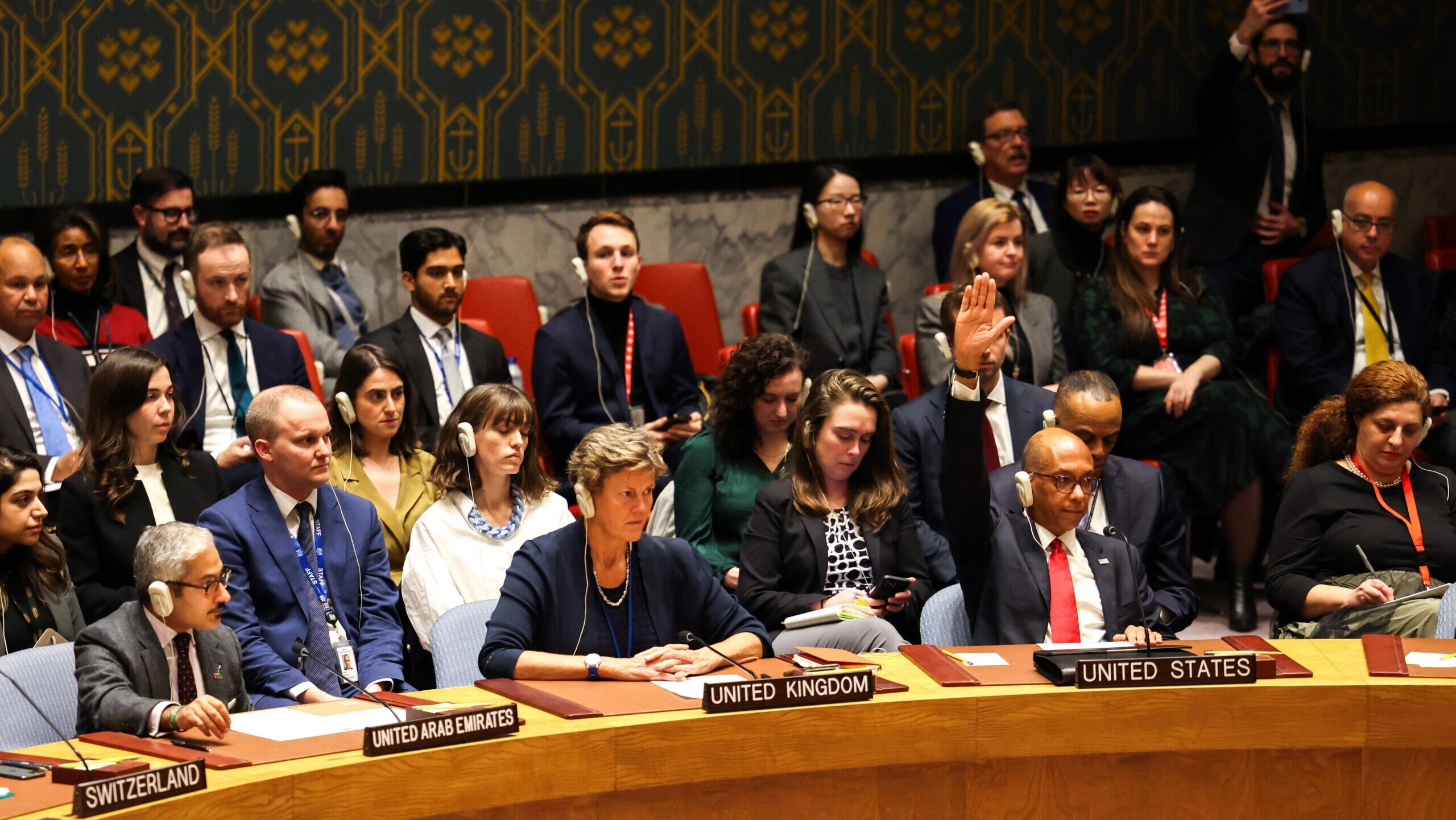The Gaza War and America’s Isolationism
Al-Ittihad, UAE, December 20
The events of the past week have revealed the detrimental impact of the United States’ leniency and indifference toward Israeli policies on America’s global reputation. The United Nations witnessed two votes calling for a cease-fire in Gaza, and it became evident that most of our allies have distanced themselves from the United States. This comes at a time when many are questioning our leadership in the world. The Israeli bombing of Palestinians in Gaza has persisted for over two months, resulting in an alarming death toll of nearly 20,000 people, the majority of whom are innocent civilians. The northern region of Gaza has been reduced to ruins, displacing almost 2 million Palestinians from their homes. Israel has tactlessly shifted its bombing campaign to the south, where Palestinians are forced to relocate, only to be struck in the same areas they were ordered to move to. This constant turmoil has caused hunger and disease to ravage the temporary camps in the south, creating a humanitarian catastrophe that can only be described as genocide, exacerbated by Israel’s actions. Realizing the gravity of this crisis, the United Arab Emirates mission to the United Nations introduced a resolution to the Security Council, urging a cease-fire for humanitarian reasons. This resolution gained support from 103 countries as co-sponsors. Surprisingly, the United States invested significant political capital in persuading other nations to vote “no” in the lead-up to the vote, but their efforts failed. The United States’ isolation became evident when it found itself on a short list of countries opposing the resolution and the United Kingdom abstaining from voting. The following day, the General Assembly demonstrated further evidence of America’s isolation, as a non-binding cease-fire resolution garnered 153 votes in favor, while only the United States and nine other nations voted “no.” To justify their veto and opposition to the resolution, the United States falsely claimed that the resolution was presented hastily, without allowing sufficient time for discussion. This claim is embarrassingly contradicted by the fact that the humanitarian crisis in Gaza has persisted for two months, and the UAE resolution had been circulating in the Council for several days, providing ample time for discussion. Instead of engaging in negotiations, the United States focused on pressuring other countries to join their opposition. Consequently, it is evident to the world that the Biden Administration is unwilling to call for a cease-fire. Two other factors reinforce this conclusion. Shortly after the UN vote, the White House unilaterally decided to send 14,000 artillery shells to Israel, without first notifying Congress. In essence, they did not have enough time to consider a cease-fire but found no issue in swiftly sending more lethal weapons to Israel, breaching the necessary congressional oversight under the Arms Export Control Act. During a recent gathering at the White House to commemorate the Jewish holiday of Hanukkah, President Biden expressed his affection for Israel, its right to self-defense, and the United States’ commitment to stand by its side. He then seemingly criticized Israel’s conduct in the war, specifically its indiscriminate bombing in Gaza. However, the next day, a spokesperson for the US administration toned down the president’s statements, while another suggested that Israel had exercised caution and precision in its bombing campaign in the southern Gaza Strip. Rather than recognizing the immense loss of Palestinian lives and the appalling conditions survivors are enduring, the United States continues to prioritize Israel’s impractical military objective of “eliminating Hamas.” Consequently, US decision-makers view calls for a cease-fire as perplexing. I recall a conversation I had with a high-ranking official in the Biden Administration a few weeks into this war. He regurgitated Israeli talking points, stating, “A cease-fire will not be acceptable because it will only give Hamas time to rearm itself.” When I highlighted the mounting death toll and destruction in Gaza, he conceded, “That too is unbearable.” To which I responded, “So there are two intolerable situations, but you choose the one that continues to cost more Palestinian lives.” This conversation occurred when the death toll in Gaza stood at 3,000. Now, the number approaches 20,000, while the international community and a significant portion of the American public are growing weary of Israel’s war and America’s support for it. As a result, the current administration is inflicting severe harm upon the United States’ standing, credibility, and the principles we claim to uphold. In conclusion, while international public opinion around Israeli conduct is shifting, American policy remains stagnant and increasingly isolated. —James Zogby (translated by Asaf Zilberfarb)


